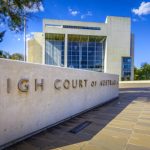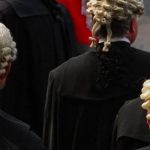Integrity of Criminal Justice System in Tatters: The ‘Lawyer X’ Scandal

At 4.15 pm last Friday afternoon, the Australian High Court and the Victorian Court of Appeal lifted suppression orders, which lead to the disclosure of the identity of Lawyer X: a police informant, who whispered her clients’ confidential details to Victoria police between 1995 and 2009.
It was revealed that former Victorian criminal defence barrister, Nicola Gobbo, was the registered police informant that officers referred to as Informant 3838. However, the identity of Melbourne gangland war informant has been known across the Australian legal profession since the case first came to light, and is one of the city’s worst kept secrets.
A member of the prominent Gobbo legal family, Nicola’s identity was made public after the Victorian Royal Commission into the Management of Police Informants, which held its first hearings last month, along with the Victorian and Commonwealth Ombudsmen argued for its release.
The Victorian Director of Public Prosecutions (DPP) wrote to at least twenty former Gobbo clients last month, letting them know that their convictions could be undermined by police use of their lawyer as an informant. This list included former underworld drug lord Tony Mokbel.
And not only has the legitimacy of multiple convictions made at the height of the gangland wars been jeopardised, but legal experts warn that the use of several lawyers by police as informants has breached fundamental legal obligations and risked public confidence in the criminal justice system.
A run in with the law
The niece of former Victorian governor and Supreme Court Justice Sir James Gobbo, Nicola began to get a reputation for partying in the early nineties after she began studying law at Melbourne University.
In 1993, whilst she was still at university, police raided the North Carlton share house where she was living and seized 1.4 kilograms of methamphetamines and 350 grams of cannabis. Gobbo and her two flatmates were charged with drug trafficking.
However, even though the other two were sent to prison, the trafficking charges against Gobbo were dropped and she pleaded guilty to possession. The law student entered into a good behaviour bond and no conviction was recorded.
A former friend, who helped Gobbo edit the Melbourne University student magazine, has said her two co-accused took the blame for her. Two years after her arrest, Ms Gobbo was first registered as a paid Victoria police informant, before she even started practising as a lawyer.
In too deep
Gobbo went on to become the defence barrister for some of Melbourne’s most notorious gangland figures. Not only did she represent Mokbel, but she had mafia boss Pasquale Barbaro and George Williams as clients. She soon developed a reputation for spending too much time with them.
Her mainstay was drug traffickers. Gobbo has stated that Victoria police expected her to share everything she knew about clients, and officers encouraged her to attend large underworld dinner parties and find out what she could.
According to the former criminal barrister, police arrested and convicted at least 386 people based on the information she was handing over. Over that period, several lawyers pulled her aside and warned her that she was getting too close to her clients.
Beginning of the end
But, it was when Victoria police requested she stand witness at disgraced drug squad detective Paul Dale’s trial – where it had been alleged that he had ordered the 2004 murders of police informant Terence Hodson and his wife – that things really began to come unstuck for Ms Gobbo.
Victoria police alleged that Dale requested George Williams organise the murders and hitman Rodney Collins had been hired to carry them out. It was later revealed that Ms Gobbo had worn a wire in 2008 to record a conversation with Dale, where she broached the subject of the killings.
There was never enough evidence to convict Dale. Gobbo eventually dropped out as a witness, fearing for her life after receiving threats. And it was at this point that Ms Gobbo found her reputation had been destroyed and she could no longer obtain work in the legal profession.
The Mokbel crew could walk free
The most high-profile gangland criminal that could have his convictions reversed after the informant revelations is Tony Mokbel and his associates. Mokbel himself could claim his trial was unfair as Gobbo, his lawyer, was working both sides, according to the Victorian DPP.
The arrest and conviction of one of Mokbel’s drug cooks was essential in seeing the drug lord’s empire fall and it was Ms Gobbo who led police to him. She was representing the unnamed cook when he decided to inform upon the rest of the Mokbel cartel.
There’s at least another nine Mokbel associates that could see their convictions reversed, as far as the DPP is concerned. These include his brother, Milad Mokbel, money launder Kamel Khoder, and high-level drug trafficker Rob Karam. Ms Gobbo played a part in all of their convictions.
Whittling away at the foundations
But, perhaps the most detrimental effect of this scandal is its undermining of the Rule of Law. Basic safeguards that underpin the legal profession, such as client confidentiality, representation of a client’s best interests and disclosure of any conflicts of interests were thrown out the window.
Royal Commissioner Margaret McMurdo warned earlier last month that “when those whom the community entrusts to uphold and enforce the law themselves breach fundamental legal obligations, confidence in our justice system, and indeed our democracy, is seriously diminished”.
Following the disclosure of her identity, Gobbo will now play a prominent role in the commission inquiry, which was called to primarily investigate her as informer, but also a list of other informers that worked in prominent positions.
The commission’s interim report will be tabled by the 1 July, and the final report on 1 December.
And as to why she informed on her clients, Ms Gobbo claims she did it all for the good of the community. In a 2015 letter to police, she said her “motivation in assisting police was not for self-gain, but was rather borne from the frustration of prolific large commercial drug trafficking”.








